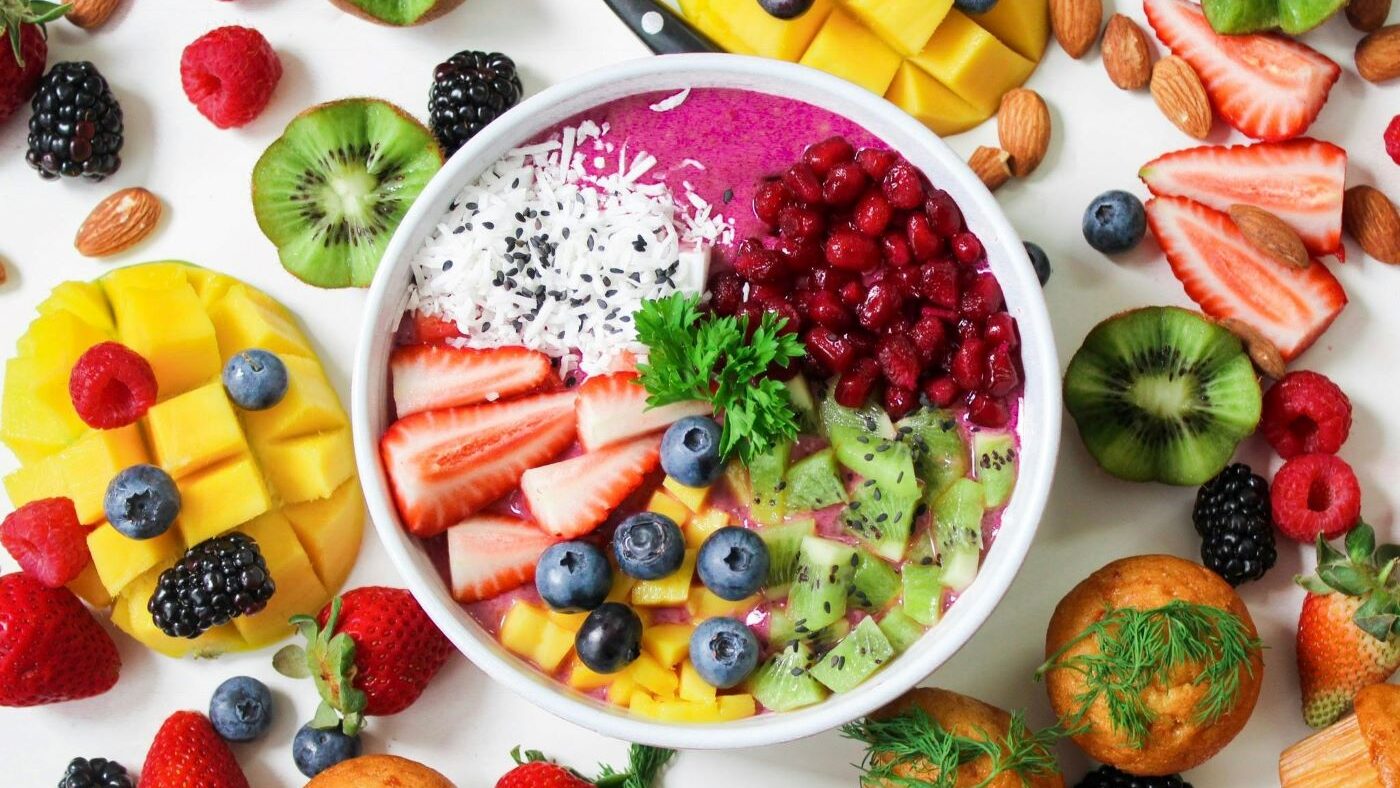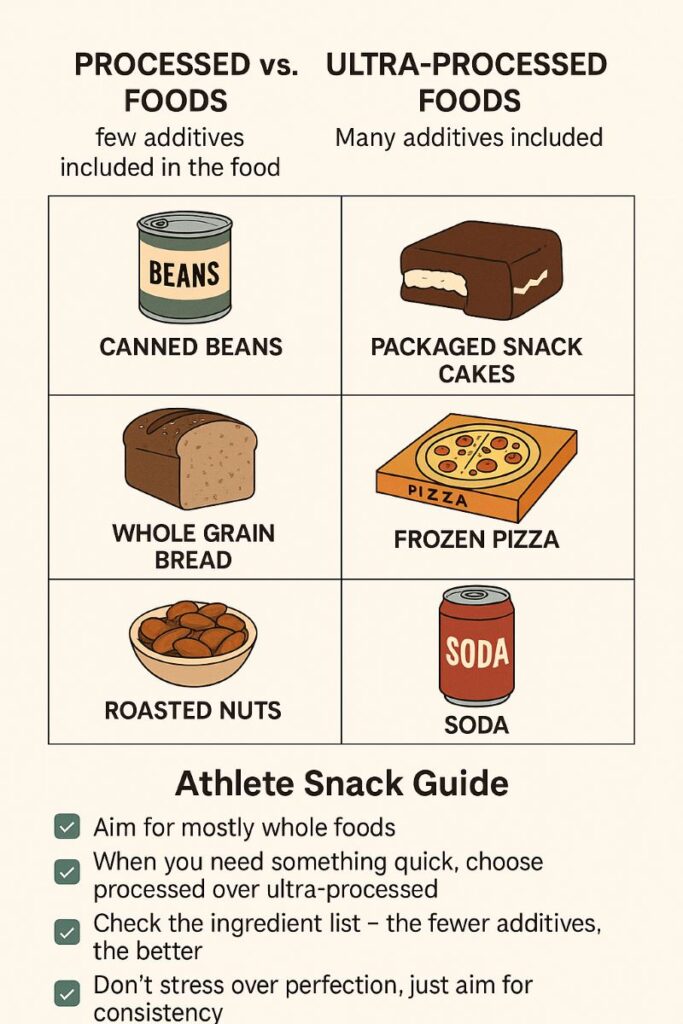Today’s athletes are constantly on the move. Between practices, games, school, and life, it’s hard to find time to prioritize nutrition. Grabbing something quick is often the only option. And while convenient, those quick options usually fall into the category of processed or ultra-processed foods.
The good news? There’s no strong evidence that eating processed or ultra-processed foods directly harms athletic performance in the short term. However, there is growing research showing their impact on something else that matters more than you might think—your gut health.

What’s the Big Deal About the Gut?
Your gut microbiome plays a huge role in your immune system, recovery, and overall health. A healthy gut supports the gut mucus barrier, which helps protect your body from inflammation and illness. We continue to learn more and more about the importance of our gut microbiome in health and disease. One thing is for certain, we need to pay attention!
Recent research, from Nature Reviews, suggests that ultra-processed foods can damage the microbiome and weaken the gut mucus barrier. Certain additives—like emulsifiers and preservatives—are believed to have a negative effect on that protective layer.
So while these foods might not slow you down in a sprint or a lift today, consistently eating them in high amounts could impact your ability to stay healthy and perform your best over time.
What Are Processed vs. Ultra-Processed Foods?
Let’s break it down:
- Processed Foods
These are foods that have been altered from their original state but with only a few added ingredients. Think: canned beans, whole grain bread, or roasted nuts with a bit of salt. - Ultra-Processed Foods
These go several steps further—often containing many additives, artificial flavors, preservatives, and ingredients you can’t pronounce. Think: packaged snack cakes, frozen pizzas, soda, and most fast food items.
So, What Should an Athlete Do?
We get it. Between classes, workouts, and travel, eating whole, fresh meals every day isn’t always realistic. That’s okay.
Here’s a practical approach:
– Aim for mostly whole foods like fruits, vegetables, meat, beans, whole grains, and healthy fats.
– When you need something quick, choose processed over ultra-processed when possible.
– Check the ingredient list—the fewer additives, the better.
– Don’t stress over perfection, just aim for consistency.
– Moderation is key—it’s not about never eating processed foods, just not always eating them.
To break it down another way, this is a breakdown of an apple. An apple is better than apple juice but apple juice is better than apple pie. However, if you’re going to eat apple pie, Grandma’s homemade apple pie is better than a store bought apple pie. This is due to the preservatives that must be used to store foods for extended periods of time.
Point is, when you can, make healthy food choices because it’s not always possible.
Bottom Line
You don’t need to fear processed or ultra-processed foods—but you should be aware of how they fit into your overall lifestyle. As an athlete, the fuel you choose doesn’t just affect your performance today—it shapes your long-term health and ability to stay in the game tomorrow.
As an athlete on the go, protein tends to be the nutrient most under served in the convenient, processed snacks and foods available today. Although, it is one the most important building blocks to muscle function and growth. Red and white meats provide high quality protein in a nutrient dense package. Therefore, they should be a part of a well-balanced diets for athletes to ensure adequate nutrition without the need to over consume other foods.
Remember, we are learning new things everyday about the impacts of what we eat. We are quickly learning that when it comes to food composition, less is more. Avoid the processed foods when possible but when it’s not, don’t worry about it. It’s all about balance in our life and in our nutrition plan.
Make better choices when you can. Your future self will thank you.

BtL
Subscribe to our email list to get our content direct to your inbox!
Follow us on Facebook, Twitter, Instagram and TikTok
To learn more about Ball to Life and our mission, click here.
